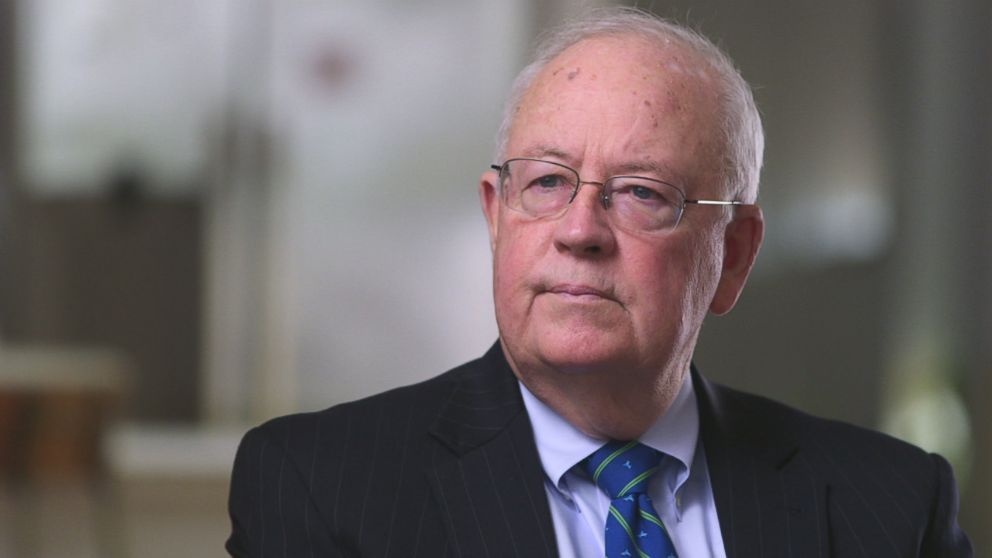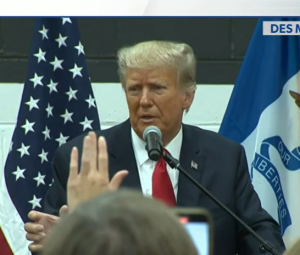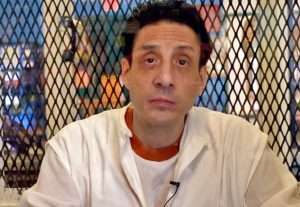Kenneth Winston Starr, a former solicitor general of the United States who rose to international prominence in the 1990s as the impartial investigator who tenaciously looked into President Bill Clinton during a string of political scandals, has passed away. He was 76.
According to a statement from his family, Starr’s death was caused by post-operative complications.
Also read: Ken Starr, prominent attorney whose probe led to Bill Clinton impeachment, dies at 76
“We are deeply saddened with the loss of our dear and loving Father and Grandfather, whom we admired for his prodigious work ethic, but who always put his family first.” the statement from Starr’s son Randall on behalf of his children said, adding, “The love, energy, endearing sense of humor, and fun-loving interest Dad exhibited to each of us was truly special, and we cherish the many wonderful memories we were able to experience with him.”
Who was Ken Starr?
From 2010 to 2016, Starr presided over Baylor University. He was a member of the defence team for former President Donald Trump during his first impeachment. Baylor President Linda Livingstone paid tribute to Judge Starr on Tuesday, calling him “a dedicated public servant and ardent supporter of religious freedom that allows faith-based institutions such as Baylor to flourish.”
Conservative Republican Starr started looking into Clinton after being chosen by a federal appeals tribunal to serve as an independent counsel in the inquiry of the participation of the then-President and Hillary Clinton in the Whitewater real estate scandal in 1994.
Although the Clintons were ultimately not charged in that case, Starr’s investigation into the Clintons’ business dealings later widened to include Paula Jones’ claims of sexual harassment. As a result of that investigation, Starr took the lead in the investigation into the President’s liaison with Monica Lewinsky.
Clinton was ultimately impeached as a result of the Lewinsky scandal on two counts of perjury and obstructing justice, but the Senate cleared him in February 1999, and he finished out the rest of his term.
Starr and Clinton were both awarded Time’s Men of the Year in 1998 as a result of the controversy, which consumed most of Washington and the news media for more than a year. According to others, Starr’s probe was a reflection of a time marked by harsh partisanship and a tabloid-like curiosity about the private lives of politicians. The inclusion of various graphic information regarding the sexual interaction between Clinton and Lewinsky in Starr’s report on the scandal to Congress in particular drew criticism.
Starr denied claims that going after Clinton had political undertones.
“I was assigned to do a job by the attorney general, and that was to find out whether crimes were committed in this (Paula Jones) sexual harassment lawsuit. The whole idea of equal justice under law means that you’ve got to play by the rules. It has nothing to do with the underlying subject matter. You just tell the truth,” Starr said at the time.
In October 1999, he announced his resignation as independent counsel, citing the “intense politicisation of the independent counsel process.”
Starr is survived by three children and his wife, Alice, whom he married in 1970.
Starr, who was born on July 21, 1946, in Vernon, Texas, first attended Harding University in Searcy, Arkansas, before transferring to George Washington University, where he earned a bachelor’s in history in 1968. He earned a master’s in political science from Brown University in 1969 and a law degree from Duke University Law School in 1973. After graduating from law school, Starr worked as a law clerk for Chief Justice Warren E. Burger and Fifth Circuit Judge David W. Dyer before joining the Los Angeles office of Gibson Dunn & Crutcher.
He worked on the transition team for President Ronald Reagan before being hired as William French Smith’s counsellor in 1981. Then, in 1983, Reagan nominated him to be a federal judge on the US Circuit Court of Appeals for the District of Columbia, and the Senate subsequently confirmed his nomination.
He was appointed US solicitor general in 1989 by President George H.W. Bush after serving as a federal judge. During that time, he argued 25 issues before the Supreme Court, according to the Department of Justice. He went back into private practise in 1993 and began working in Chicago for Kirkland & Ellis.
When Jeffrey Epstein, the alleged paedophile, was awarded a settlement in 2008 that shielded him from federal prosecution, Starr was also a member of Epstein’s legal team. Additionally, he defended employees of Blackwater USA who were charged with war crimes for allegedly killing civilians in Fallujah during the Iraq War. Four former Blackwater contractors were convicted in 2014 and given lengthy prison sentences; however, Trump commuted their sentences in 2020.
From 2004 until 2010, Starr served as dean and professor at Pepperdine University’s law school outside of his legal practise. He was removed after an independent investigation revealed a “fundamental failure” to effectively address student sexual assault complaints when he was also president of Baylor University.
When Donald Trump asked Starr to join his legal team in arguing for his exoneration during his first Senate impeachment trial in 2020, Starr once again entered the public glare. The selection unavoidably brought back memories of a previous period when Washington was preoccupied with an impeachment probe, Beltway politics became more competitive, and a president with a turbulent personal life and a penchant for controlling the media was in office.







